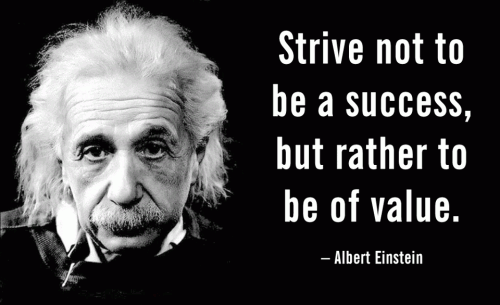Early in my teaching career, I sometimes felt a disconnect with my building administrators. I never really viewed them as a resource to help me in my teaching. In a way, I think I cheered against them, because I really believed they were cheering against me.
The fact that I once thought this way seems ludicrous to me now. I'm sure my principals wanted the best for our school, for me, and for my students. But the way we interacted left me feeling like their purpose was to catch me making a mistake, "Gotcha!"
I suspect this type of dynamic is not all that uncommon between leaders and followers, in and out of education. And I think there are lessons to be learned on both sides. These lessons are important to explore. It's impossible to have a healthy school when there is a lack of trust.
7 Behaviors to Build Trust
Leaders and followers both have responsibilities for building mutual respect. But leaders need to set the tone and lead by example. Here are seven ways leaders can create a high-trust culture.
1. Listening. Too often leaders are pushing an agenda and trying to reach goals without really listening to others. Teachers need to feel heard. This means leaders show empathy and truly seek to understand the daily challenges and requests from teachers. Always put people first.
2. Develop shared meaning and purpose. Teachers and principals share many of the same goals, but we often experience our differences more intensely than our similarities. We all want students to learn, we want a safe environment, and we want a positive culture. Teachers want leaders to communicate positive intentions and create safety for dialogue to occur.
3. Progress, not perfection. Nothing erodes trust as quickly as a leader with a critical spirit. Great teachers want accountability, but they want leaders to communicate in a way that builds on respect and seeks progress, not perfection. All of us have areas we need to improve. Leaders need to spend most of their energy recognizing the positive and building on the strengths of others.
4. Lead by example. Teachers want leaders who hold themselves accountable before they seek to hold others accountable. They want leaders to set the tone, to show the way, and to model the characteristics that would benefit the whole school. No job is too big or too small for a leader who is a servant leader.
5. Keep promises. Teachers want leaders who are promise keepers, who make commitments carefully, but stick to them. Trust-building leaders make honesty and sincerity a symbol of their honor. They seek to keep their promises at all costs.
6. Right wrongs. Even the most trustworthy leaders make mistakes. The key is to quickly right the wrong and admit the failure. Teachers respect leaders who own their mistakes and apologize immediately to those who were harmed. They do everything possible to avoid hurt feelings and bad blood.
7. Be authentic. Teachers want their leaders to be transparent and open. This means no hidden agendas. Authentic leaders reveal who they are and show what they value. They are self-aware and express their thoughts and feelings in healthy, caring ways.
When I became a principal, I quickly saw with new eyes. I learned just how difficult the job can be. But I also tried my best to always remember the perspective I had as a teacher. I hope every principal will strive to be the kind of leader your teachers need.
Share your perspective: What else do teachers need from principals? Leave a comment below or share on Twitter or Facebook.








